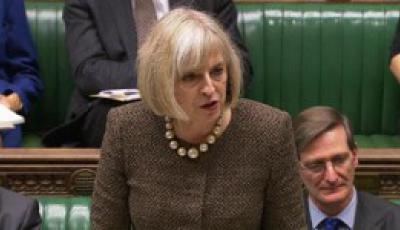Guest post by Lieve Gies, Senior Lecturer, Department of Media and Communication, University of Leicester. Lieve’s current research examines media discourses on the UK’s Human Rights Act 1998. She is the author of Mediating Human Rights: Media, Culture and Human Rights Law (Taylor and Francis, forthcoming 2014).
My research focuses on the mediation of human rights law, with particular reference to the UK’s Human Rights Act 1998 (HRA). The popular press in Britain has been accused of portraying the HRA as a “villains’ charter” which predominantly benefits wrongdoers. Human rights advocates have argued that such negative portrayals have hampered the establishment of a human rights culture. My book analyses media coverage of the HRA, considers why sections of the press may be hostile to the Act, while exploring the media strategies of human rights campaigners. This guest post is based on one of the chapters of the book in which I discuss media attitudes to human rights claimants accused of serious wrongdoing facing extradition.

Only a few weeks earlier, the computer hacker Gary McKinnon, whose supporters had mounted a high-profile media campaign against his extradition, finding a powerful ally in the Daily Mail newspaper, learned that he would not be extradited to the US to stand trial on cyberterrorism-related charges. In her decision, Home Secretary Theresa May cited human rights grounds, explicitly referring to McKinnon’s learning disability (he suffers from Asperger’s Syndrome).
The motivation for not extraditing McKinnon and the political timing of May's decision raised uncomfortable parallels with the circumstances in which the five Muslim terrorism suspects were extradited, revealing the limits of human rights protections. For the brother of one of the five extradited Muslim suspects, Talha Ahsan―who also suffered from Asperger’s Syndrome―the media was culpable: “The Daily Mail spearheads a campaign against British citizens being extradited and it refers to Talha Ahsan and Babar Ahmad as unwanted guests. No government of the day wants to upset the Daily Mail.”
In comparing these two cases we see how the media creates distance with those who are otherwise proximate (Cohen 2001), denying their humanity on the ground that they are “beyond the pale” (Silverstone 2007: 75). Abu Hamza’s demonization dispensed with the need for a measured debate about human rights, while the anonymity of the other four prevented them from accessing protections. Most of all, these two cases obscured the reality that rights are not awarded on merit or status, that belonging to a particular group or close identification with the victim ought not to matter and that rights cannot to be taken away in retaliation for specific wrongs committed by an individual.
The HRA has suffered from bad press for as long as it has been in existence. A few newspapers have been campaigning vigorously for its repeal. The Conservatives are giving increasingly strong indications that they indeed intend to dismantle the Act after the next general election if they win an outright majority. An informed public debate is needed to enable the electorate to weigh up the choices it is facing. However, it is difficult to see how such a debate can take place as long as there is widespread media denial of the fact that human rights protection extends to everyone, good and bad alike.
Want to start a discussion about this topic? Post a comment here or on our Facebook page. You can also tweet us.
See also Sadhbh Walshe's piece published in The Guardian: 'Britain's double standard on extradition to US prison abuse.'
__________
How to cite this blog post (Harvard style):
Gies L (2013) Extradition and Media Justice. Available at: http://bordercriminologies.law.ox.ac.uk/extradiction-and-media-justice/ (Accessed [date]).
Share:








